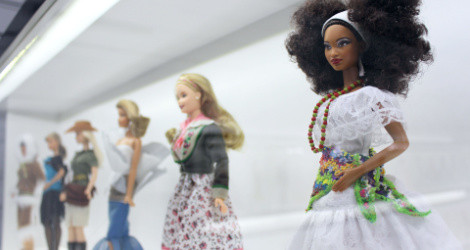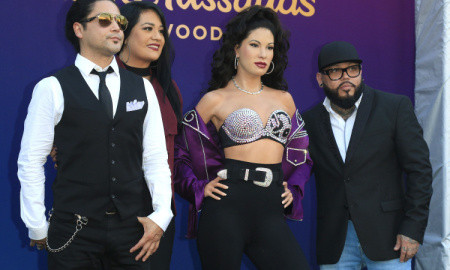Sign up for our free daily newsletter
YOUR PRIVACY - PLEASE READ CAREFULLY DATA PROTECTION STATEMENT
Below we explain how we will communicate with you. We set out how we use your data in our Privacy Policy.
Global City Media, and its associated brands will use the lawful basis of legitimate interests to use
the
contact details you have supplied to contact you regarding our publications, events, training,
reader
research, and other relevant information. We will always give you the option to opt out of our
marketing.
By clicking submit, you confirm that you understand and accept the Terms & Conditions and Privacy Policy
Unless you have been living in a fantasy world, you have probably heard that the Barbie movie was released this summer. There has been chatter across the internet and on social media – ranging from conversations about Mattel’s many Barbie-centric collaborations to whether the film will feature Aqua’s original ‘Barbie Girl’ song. It appears that fans and consumers not only want to know where they can get Barbie brand roller skates but they are also interested in what the Aqua lawsuit means for the film’s soundtrack.
The fascination with all things Brand Barbie is understandable, and in fact, consumer perception is key to trademark law. In any event, the history of Mattel’s fierce protection of the intellectual property in its world of Barbie collaborations, including working with former adversaries, provides for an interesting discussion. Several users on TikTok have observed that “the Barbie marketing team doesn’t sleep” and that “the devil works hard, but Mattel’s marketing team is working overtime” – but what about its legal team?
The Aqua Lawsuit
In April 1997, Aqua released its hit single ‘Barbie Girl’, which topped charts worldwide beginning in Denmark and made its way to the United States by August of that year. As of September 1997, the Danish-Norwegian pop group was releasing CD and cassette tape versions of the Aquarium album, on which the ‘Barbie Girl’ song was featured. Within a matter of days of the US release, Mattel, the owner of the Barbie intellectual property, filed suit against MCA Records asserting 11 claims and seeking, inter alia, injunctions and damages. In its complaint, Southern California-based Mattel claimed that Aqua infringed on its trademark Barbie pink colour, copied her accessories and Dreamhouse, and tarnished the reputation of the BARBIE mark by calling her a “Blonde Bimbo” together with lyrics of “unsavoury themes”.
MCA Records, Aqua’s label, countersued for defamation and claimed that it was protected by the disclaimer on the booklet accompanying the Aquarium CD and cassette tape that stated: “The song ‘Barbie Girl’ is a social comment and was not created or approved by the makers of the doll.” To defend against claims that Aqua’s lyrics had sexualized the doll, MCA also asserted that Barbie was originally inspired by a doll that resembled a “German street walker”.
The litigation continued until July 2002 when the US Court of Appeals for the Ninth Circuit issued its precedential opinion ruling that the song was a parody and therefore, protected under the trademark doctrine of nominative fair use and the First Amendment. (In the process, the court adopted the test set out by the Second Circuit in Rogers v. Grimaldi, 875 F.2d 994 (2d Cir. 1989)). The unanimous opinion penned by Judge Alex Kozinski closed with: “The parties are advised to chill (Mattel, Inc. v. MCA Records, Inc., 296 F.3d 894, 906 (9th Cir. 2002)).” The petition for writ of certiorari filed by Mattel was denied by the US Supreme Court in January 2003. The case continues to be considered “an important precedent related to free speech”.
Enforcing Brand Barbie
Mattel has been historically known to run a strong enforcement programme against unauthorised and arguably infringing users of the Barbie brand, including a lawsuit against an artist who created a series of photos called ‘Food Chain Barbie’ and another against a party who altered Barbies into ‘Dungeon Dolls’ – both of which resulted in Mattel being defeated on free speech grounds. In 2013, Mattel was ordered to pay legal fees to Bratz doll maker MGA Entertainment, after a nine-year-long copyright and trade secrets battle. Although this case did not implicate the First Amendment as the ones previously discussed, it is yet another example of Mattel’s pattern of meticulously defending its intellectual property that is Barbie. In another opinion by Kozinski, he advised: “While this may not be the last word on the subject, perhaps Mattel and MGA can take a lesson from their target demographic: Play nice (Mattel, Inc. v. MGA Entm’t, Inc., 705 F.3d 1108, 1111).”
To read the full article, please visit The Fashion Law’s website.
Loeb senior associate attorney Emily Borich focuses her practice on advertising and intellectual property matters, with an emphasis on trademark and copyright litigation, enforcement, counseling, prosecution and transactional matters. She can be reached at [email protected]. This article was originally published in The Fashion Law, a modern media and information company that explores the legal and commercial challenges facing the retail industry.
Founded in 2012 by Julie Zerbo, TFL provides unique and actionable analysis to business and legal professionals. Reach Julie at [email protected].
Email your news and story ideas to: [email protected]











